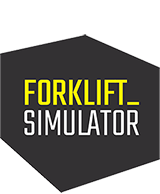
FL-Simulators in New zealand
VR simulators putting forklift cadets in the driver’s seat
Budding forklift drivers here have been given a danger-free way of gaining qualifications and jobs through a virtual reality simulator.
More than 95 percent of unemployed graduates of a Hawke’s Bay training programme that uses cutting-edge virtual reality (VR) technology have achieved long-term employment.
Funded by the Te Ara Mahi allocation of the Provincial Growth Fund, the Whiti – Supply Chain Cadetship programme, produced by IMPAC Health & Safety NZ, teaches forklift operations by using VR simulators and actual forklift and work scenarios. The 12 participants at a pop-up course in Gisborne this week are expected to graduate with offers of gainful employment.
Whiti Programme manager Andrew Stone said the cohort were all Work and Income clients who had to apply to be on the course and pass two selection stages.
“The nature of the VR training meant cadets completing the two-week programme emerge with a similar level of technical competence to somebody who has been driving a forklift for at least a year.
“Qualifications achieved in the programme include the VR Forklift certification, NZ Forklift Operators Certificate and unit standards in workplace health and safety.
“This potential was seen by the Provincial Growth Fund whose funding helped establish Whiti in the Hawke’s Bay,” Mr Stone said,
“The results achieved to date have seen the course also now provided to Ministry of Social Development clients, with plans to go nationwide.
“We have asked employers to offer 10-month, fixed-term contracts as a minimum, which is a radical step for many of them used to short-term contractual arrangements.
“We are encouraged by the industry support we have received from the likes of Mr Apple, Rockit Global, T&G, Tumu Timbers and Lineage.”
Mr Stone said the VR simulators enabled cadets to learn between four and 20 times faster than traditional methods.
“I’d say that when it comes to forklifts, it’s probably 20 times faster.
“Whiti, which means bridge, was created to help people get better employment, better pay and to persevere to get the most out of the qualifications earned by them.
“Cadets are able to make better choices because they know where next week’s rent is coming from and that the bills are getting paid.”
Further focus is placed on teaching core workplace health and safety skills, combined with broader lifeskills training such as goal-setting, resilience, and confidence, Mr Stone said.
“The wrap-around approach is achieving extraordinary results in the labour-strapped primary industries sector.”
Source: The Gisborne Herald
Picture by Liam Clayton.
CUTTING-EDGE TRAINING: Whiti programme manager Andrew Stone oversees Gisborne’s Shane Hare as he learns to operate a forklift on a virtual reality simulator. Shane is one of the 12 people taking part in the pop-up course in Gisborne this week. The simulators are at least 4 times and up to 20 times faster than traditional training methods, says Mr. Stone.







